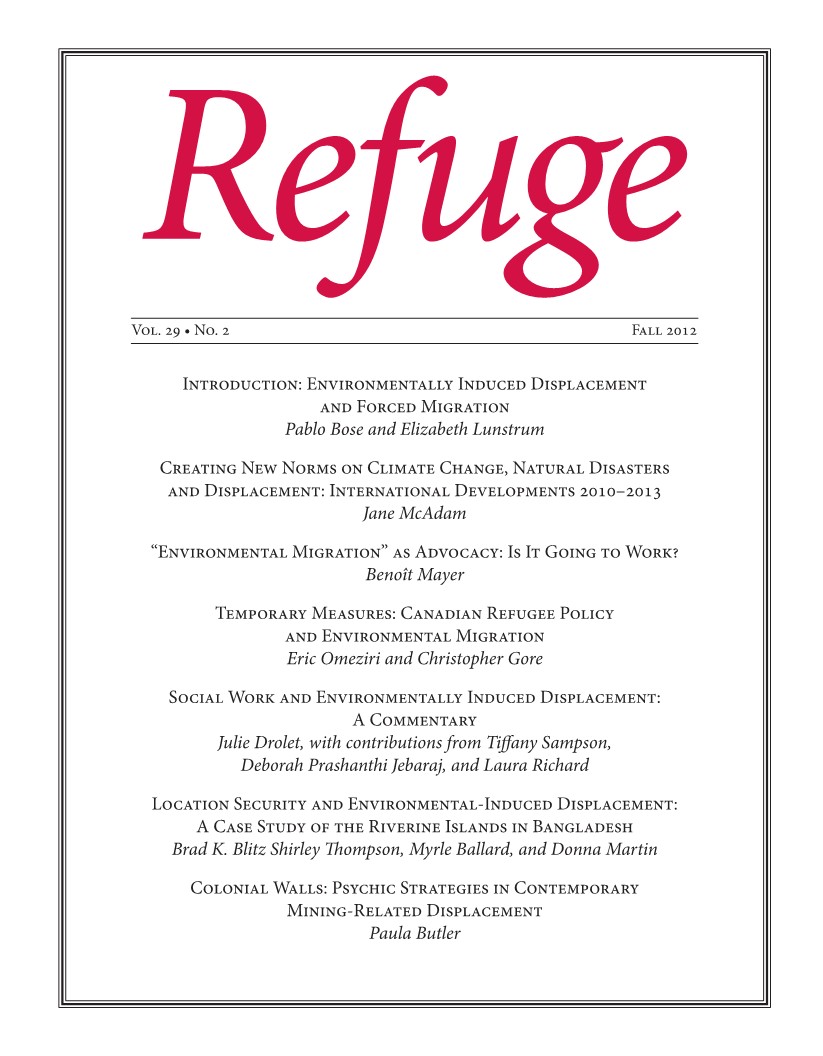Lake St. Martin First Nation Community Members’ Experiences of Induced Displacement: “We’re like refugees”
DOI:
https://doi.org/10.25071/1920-7336.38168Keywords:
Lake St. Martin, First Nation, Manitoba, Canada, Indigenous communities, environmental displacement, developmental displacement, sustainable livelihoods, policy barriers, racism, floodAbstract
In 2011, a massive flood occurred in the Canadian province of Manitoba, and provincial government officials decided to divert water to Lake St. Martin and First Nation land to protect urban, cottage, and agricultural properties. As a result of this artificial flood, all community members were evacuated, with infrastructures and housing at Lake St. Martin First Nation permanently destroyed. Three years later, 1,064 Lake St. Martin First Nation members reside in urban hotels and other temporary residences. Data from participatory videography and community workshops were analyzed using the sustainable livelihoods framework. Environmentally and developmentally induced displacement transformed an entire First Nation community into refugees in their homeland. Jurisdictional issues and racism prevented provisioning of services to meet their basic needs, help rebuild their lives, and relocate their community. Inclusive evacuation, relocation, and water-management policies and procedures are recommended.
Metrics
Downloads
Published
How to Cite
Issue
Section
License
Copyright (c) 2014 Shirley Thompson, Myrle Ballard, Donna Martin

This work is licensed under a Creative Commons Attribution-NonCommercial 4.0 International License.
Refuge authors retain the copyright over their work, and license it to the general public under the Creative Commons Attribution-Non Commercial License International (CC BY-NC 4.0). This license allows for non-commercial use, reproduction and adaption of the material in any medium or format, with proper attribution. For general information on Creative Commons licences, visit the Creative Commons site. For the CC BY-NC 4.0 license, review the human readable summary.







